What do Calais migrants know about the UK?
- Published
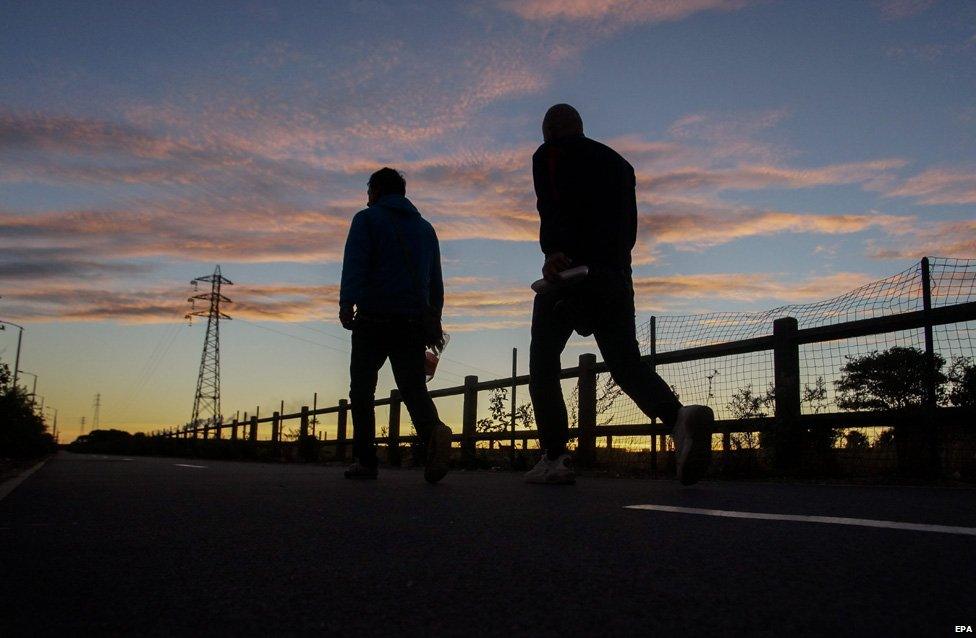
Every night hundreds of migrants risk their lives to reach the UK via trains and ferries from Calais. Some say new security measures mean it is now too dangerous - though most still harbour hopes of crossing. But what do they know about the country many are so desperate to reach?
"I'm chasing my hope because I want to study in the University of Cambridge," says Amaamer, 27, from Sudan. "It's a famous university. Since I was in secondary school I wanted to go there."
And Amaamer is prepared to go much further than the typical applicant. His foot is in plaster after he broke a bone falling off a fence, but he says he will keep trying to reach the UK once it heals. "I'm not just going there because I think it's easy," he adds.
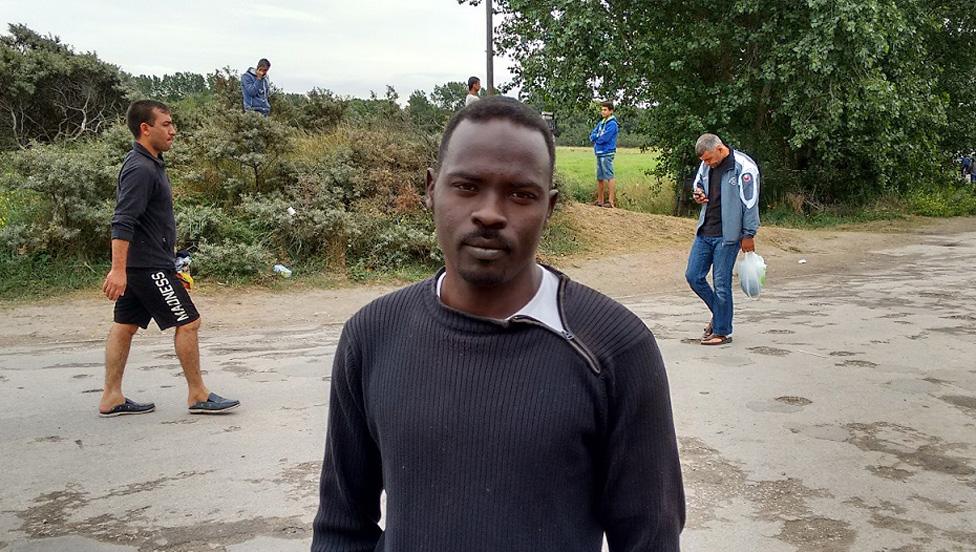
Amaamer has his sights set on a place at Cambridge University
Robah, 19, from Ethiopia says he wants to study in the UK, which he says is a "good place to be a student". Diafu, 21, from Ethiopia, also thinks he will be able to study in Britain. Diafu is angry at Britain's efforts to keep migrants out - which he sums up as "more fences, more security, sniffer dogs" - but he says whatever happens he will keep trying to cross the Channel.
Amir, 24, explains that his home country of Sudan was under British-Egyptian rule until 1956, and says this historical link is still important. "People don't know any country, only England," he says. "I know the history of England." He also says the process of applying for legal status in Britain is "very fast".
But Amir, who is helping to build a school to teach English and French in the Calais migrants camp, known as the Jungle, says he has decided to claim asylum in France.
"England is not a dreamland," he says.
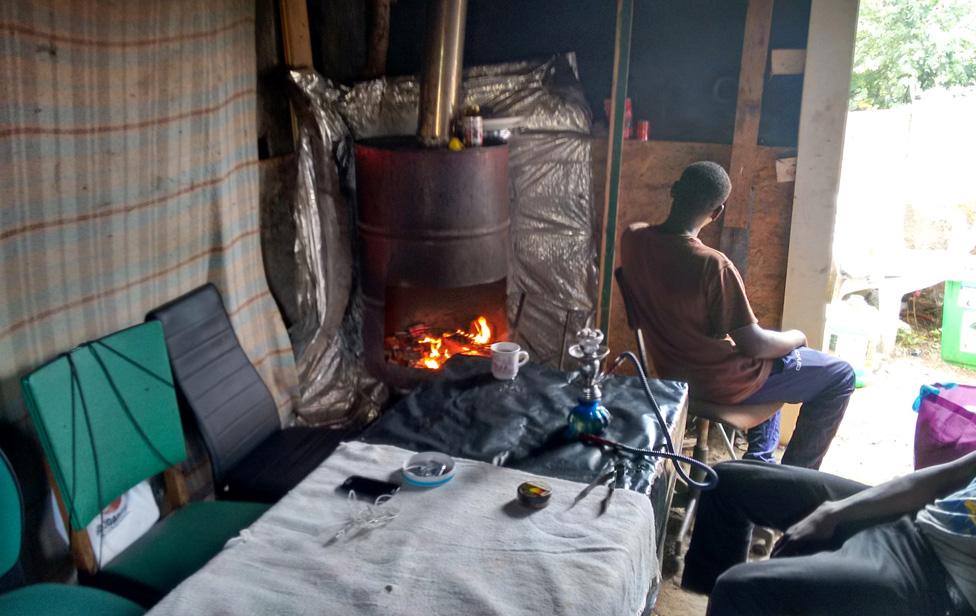
Amir and Wiel spoke to the BBC from a hut they and their friends built in the Jungle camp
His friend Wiel, 25, disagrees.
Sipping sugary tea boiled on a stove in a hut he helped to build, he says England is his "dream country", adding: "I will try until I cross." Wiel, also from Sudan, says the existence of the Jungle camp has shown him France is not the place where he wants to live. "England is not France. There is no Jungle in England," he says.
This deep dislike of France is shared by many migrants. "England is more friendly than France. People in France reject us," says Amir.
Asked what he knows about the UK, Diafu simply says it is better than France - which he describes with a single expletive.
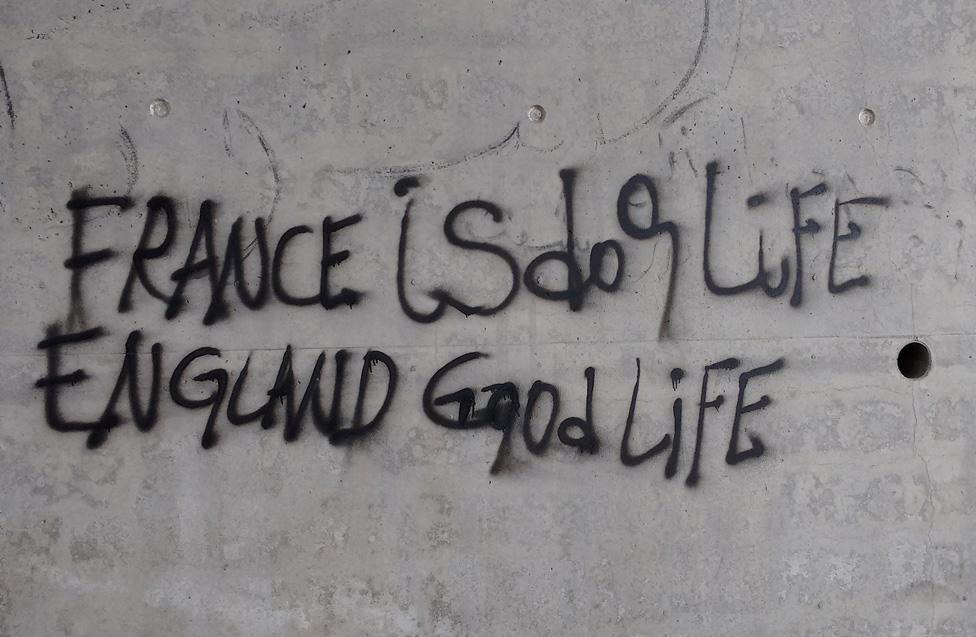
Ibrahim, 26, from Sudan, also believes better opportunities await across the Channel. "In England you get a big house," he says.
None of the migrants can say where they got their information about Britain's housing system. "You can work in England [but] I will be a student there," Ibrahim adds. He says he will try to cross the Channel "every day" until he succeeds.
"France is no good," says Robah. "In France there is no home and you spend months sleeping in the streets. It's different in England. They give you a house then you can wait while you get documents.
"In England they give you documents after three months but in France you wait much longer."
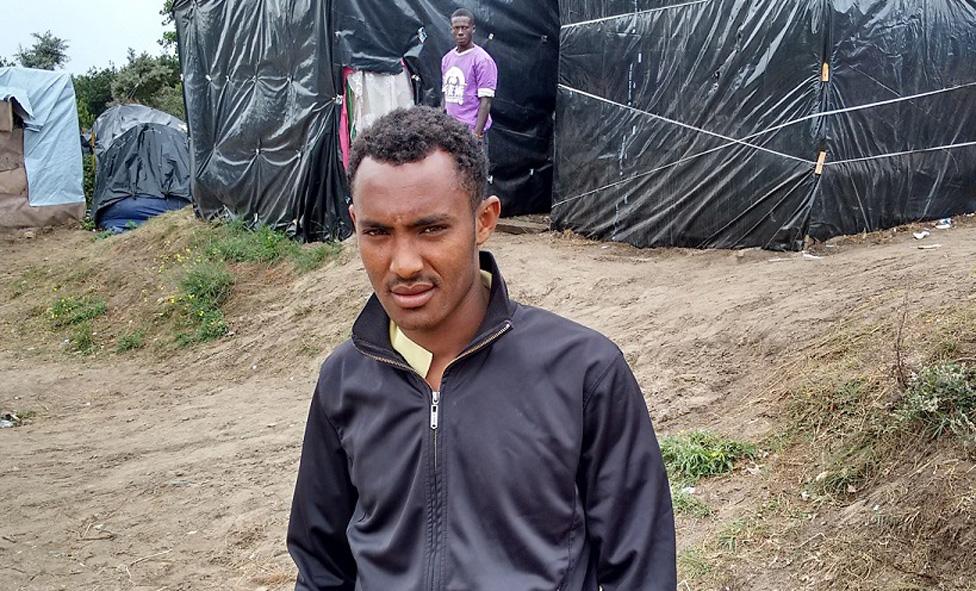
Robah says he wants to study in the UK
"People speak English there," says 21-year-old Mole, from Sudan.
It might seem strange, but many migrants give answers as simple as this when asked what they know about Britain. "People who speak English want to go there," Mole says. He says English is "easy to learn" and is the language most often used between migrants who do not have the same mother tongue.
Mohammad, 27, says Britain is a "good country". "Everyone likes it," he says.
Asked what he knows about it, he shrugs and says: "I have friends in Stoke." He says he has been to Britain once - in 2004 - but was deported to Iraq. All he is sure of is that he prefers Britain to France.
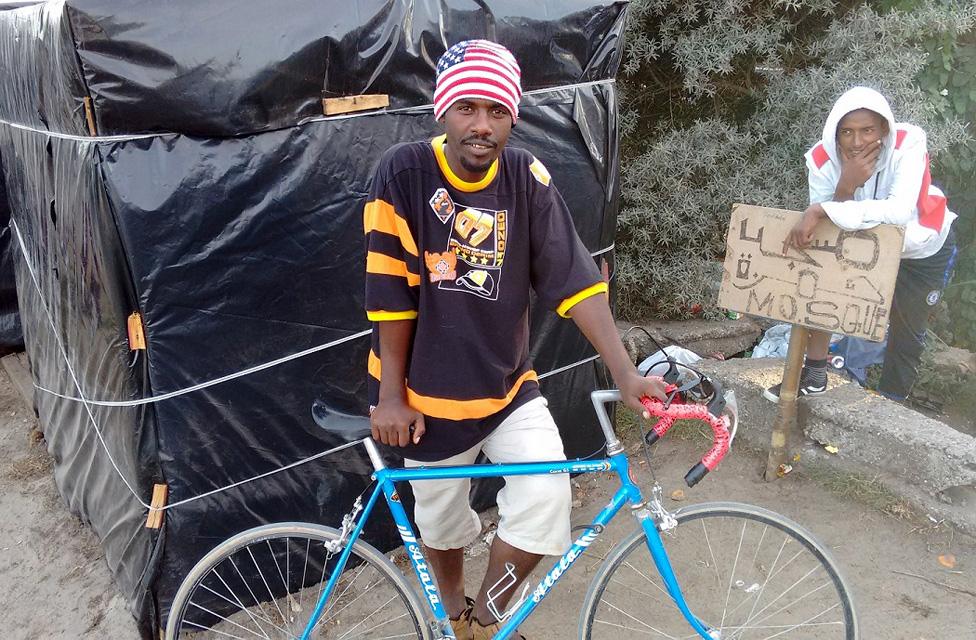
Mustapha has already tried to reach the UK 20 times
"The UK government understand our problems and they would give us protection," says 27-year-old Mustapha. He says he has tried to reach Britain 20 times, and getting there will "save my life". If he succeeds, he says British freedoms will enable him to campaign for change in his "very dangerous" home country of Ethiopia.
Mohamed, 43, has a wife and six children in his country, Egypt, and he believes if he reaches the UK they will be allowed to join him. "I want them safe and me safe too," he says. "England is the best country to help them. In England they will keep me safe."
Some migrants have particular images of British life or people that they latch on to.
"There is a man I love so much - David Beckham," says Alpha, a Mauritanian carpenter who has built a thatched house in the Jungle camp. "Even my house is called David Beckham House."
Alpha says he has accepted he will not cross the Channel - but like many migrants he still dreams of doing so, saying he would work "every day" in Britain.
His home - complete with a separate kitchen building, chicken coop and seating area - is perhaps the best in the camp.
Asked if he likes life here, he pauses for a long time. "Nobody chooses this," he says.

More from the Magazine
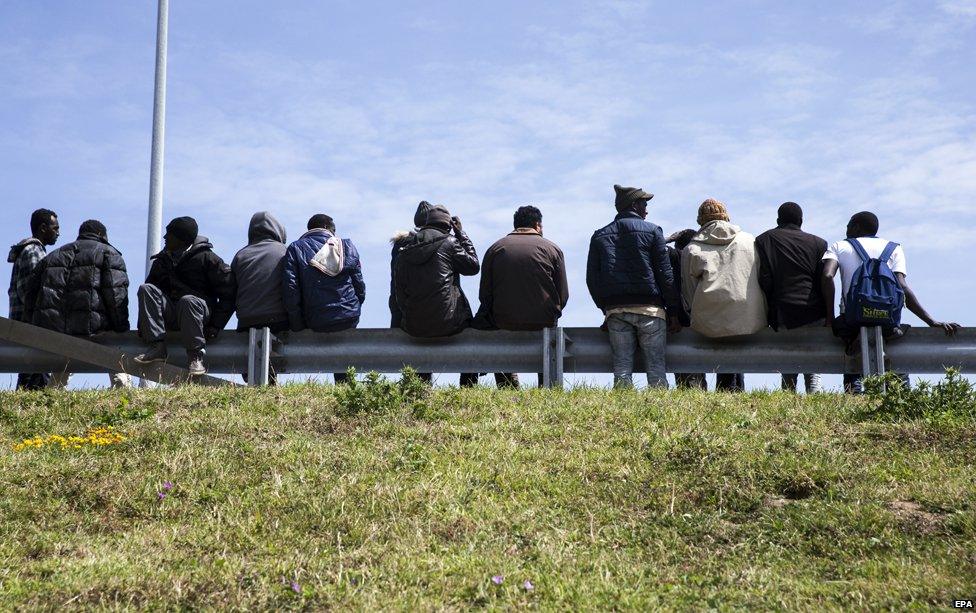
Thousands of migrants are camped around Calais in northern France. Many of them think life will be better in the UK than France - or many other EU countries - but are they right, asks Justin Parkinson.

Subscribe to the BBC News Magazine's email newsletter to get articles sent to your inbox.